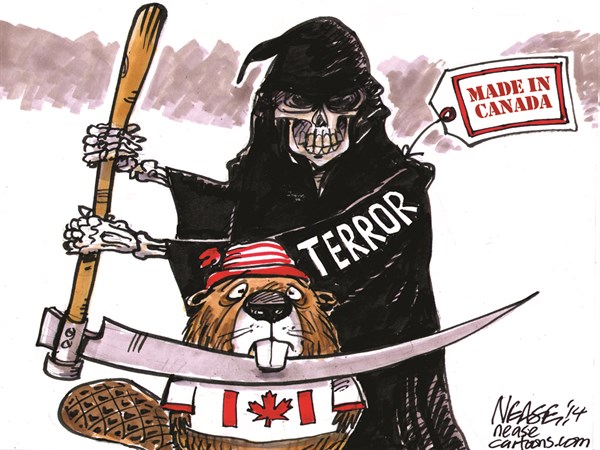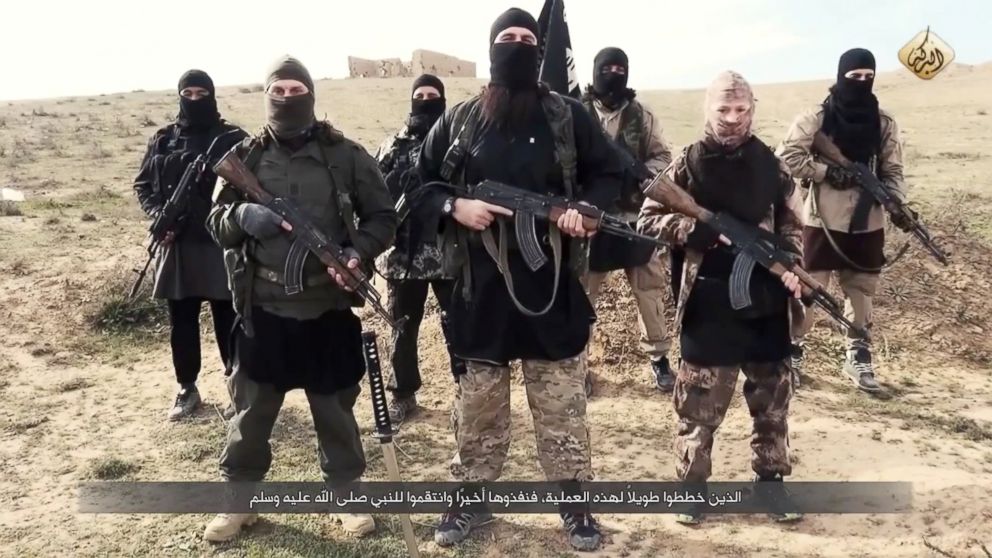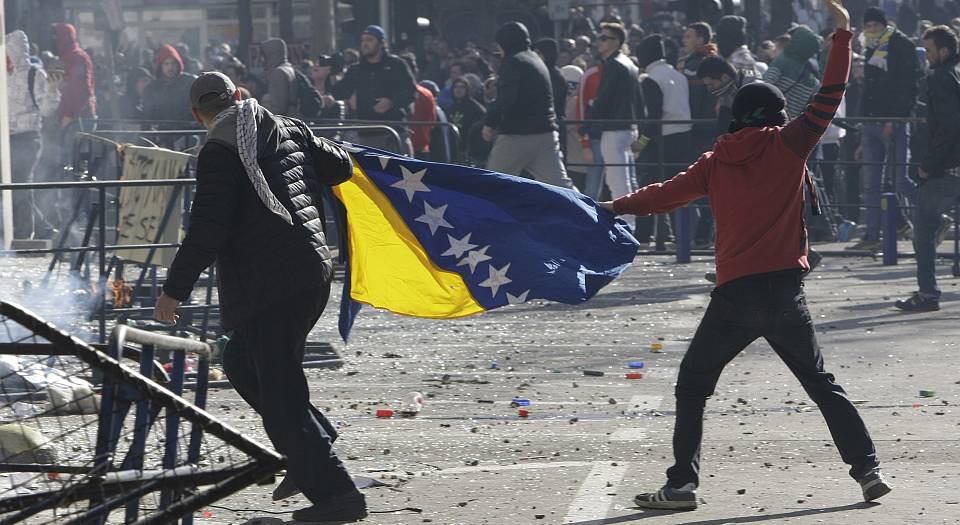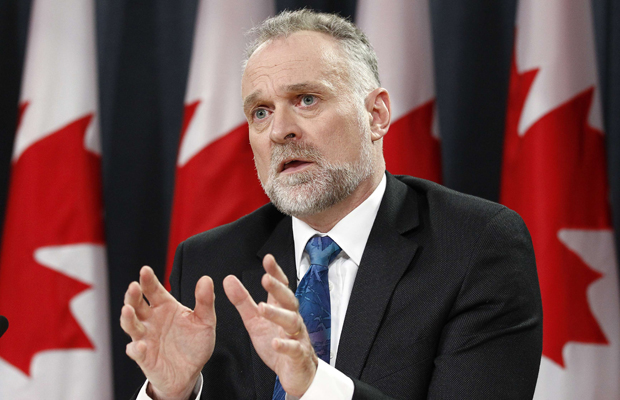On October 20, 2014 in St-John-sur-Richelieu, Quebec, Martin Couture-Rouleau, a Canadian citizen and recent religious convert, deliberately targeted and struck two Canadian Armed Forces (CAF) personnel with his vehicle, killing Warrant Officer Patrice Vincent, before later being killed himself by police officers. Couture-Roulau had been known to the RCMP’s Integrated National Security Investigations unit in Montreal as a radical supporter of the Islamic State (IS).
Two days later in Ottawa, Michael Zehaf-Bibeau, also a Canadian citizen, shot and killed CAF reservist, Corporal Nathan Cirillo, who was standing on ceremonial sentry duty at the Canadian National War Memorial. He then stormed the Centre Block of Parliament where he was shot and killed by officers and Sergeant-at-Arms of the House of Commons, Paul Vickers.

This attack at the very heart of Canadian democracy, on the sacred open-to-the-public grounds meant to represent freedom and liberty, has led to questions about how to respond to the emerging threat of “lone wolf” and “homegrown” terrorism in Canada.
In 2014, according to Canadian Security agencies, there were an estimated 130 Canadians actively participating in a variety of conflicts abroad, and another list of 90 suspected extremists who were being monitored by the RCMP and believed to have intentions to become extremist travelers. The Canadian government has also acknowledged that some 80 citizens have also returned to Canada after traveling abroad for suspected “terrorism related purposes.”[1]
Combined data from the Soufan Group and the International Centre for the Study of Radicalization (ICSR) estimated that between December 2013 and October 2014, 70 Canadians travelled to Syria to join terrorist groups. This compared to an estimated 130 Americans, 250 Australians, and 488 British in the same time period. When analyzed based on per capita, Canada had approximately five times more travellers than the US but much fewer than Australia and the UK, placing it somewhere in the middle ground in terms of extremist travellers.[2]
The most notable hub for extremist travellers has been Calgary, where an estimated 30 local residents have travelled abroad to participate in foreign conflicts. This included five men Farah mohamed Shirdon, Damion Clairmont (died fighting with al-Nusra in Syria), Salman Ashrafi (died fighting with IS in Iraq) and Greg and Collin Gordon (died fighting with IS in Syria). All of these men attended the Islamic Information Society of Calgary, a small religious centre located on the ground floor of an apartment building where they all lived.

Canadians who engage in terrorist related activity abroad not only put other people’s lives at risk but they also tarnish Canada’s reputation abroad. And for those who do not die fighting, there is the potential that they will come home with the knowledge, skills, experience and the will to carry out attacks in Canada. They may also become involved in other terror related activities like fundraising, propaganda or training for other individuals who want to travel abroad and fight. The question then is why are so many young people drawn to the movement, and what is the best strategy in combating radicalization and preventing violent extremism.
The most evident recruitment tools for extremist groups have been the Internet, social media, and charismatic preachers both in mosques, prayer rooms, and virtual spaces through the distribution of online sermons.[3] Most notable are figures like English speaking, American born and educated Anwar al-Awlaki, member of al-Qaeda in the Arabian Peninsula (AQAP), who had the ability to influence individuals from the West and elsewhere to participate in terrorism. Although he was killed in a US drone strike in 2011, his message and online sermons continue to recruit individuals long after his death proving that the Internet is a powerful medium connecting Westerners to militant Islamism.[4]
Canada is identified as a liberal, diverse and tolerant multicultural state, so the question why some individuals so dramatically reject this identity in favour of violent extremism is a difficult one to answer, especially when some of those who have travelled abroad to fight have been successful in their personal and professional lives.[5]
Some of the drivers that have been identified are a sense of alienation in a non-Islamic society, religious naiveté, economic marginalization, and a desire for excitement in otherwise boring lives.[6] Groups like IS have waged a successful propaganda campaign drawing parts of their legitimacy from the perception that they are a global force who can offer money, sex, violence, a new empowered identity, a life of notoriety, and a starkly different life from the one people knew in Canada.[7]
Another major trigger for extremism is the specific policy initiatives of the host country. There are many examples, not just in Canada, where interventions in Muslim countries are used as justification for extremists who argue that they are legitimately protecting a religious and cultural heritage from Western Imperialism. The “Toronto 18” plot explicitly cited Canadian participation in the war in Afghanistan as their primary motivation for violence. More recently, Canada has been targeted by IS propaganda because of its participation in the current war in Iraq and Syria.

Even with this information on the drivers and triggers, there is still no simple generalization to be made about the commitment to violence of extremists. Belief in a cause in itself is an unreliable predictor of an individual’s predisposition towards actually committing a violent act of terrorism.[8] There is hope however as there is still the potential to intervene and stop an individual from committing an act of violence even after they have been radicalized.
Government, law enforcement, and communities all have a role to play in the prevention of radicalized individuals’ taking the next step into violence. But it is the community which is closest to the individual, family members, peers, religious and community figures, and teachers, who are in the best position to recognize a radicalized individual and intervene before it is too late. Outreach and engagement networks built up by local police, RCMP, and by advisory and liaison groups like the Cross-Cultural Roundtable on Security are also vital to this mission.[9]
Most importantly, the Canadian government, law enforcement agencies, spy agencies, and communities must continue to build on the institutions and initiatives already in place and create a strong counter narrative that challenges and disproves the lies of terrorist organizations like IS. It is also important to remember that there is nothing inevitable or irreversible about holding radical views; it is always possible for individuals to disengage from the world of extremism.
[1] McCoy, John, and W. Andy White. “Homegrown Terrorism in Canada: Local Patterns, Global Trends.” Studies in Conflict and Terrorism 38 (2015): 253-74
[2]Ibid., p.256
[3]Ibid., p.258
[4]Ibid., p.259
[5]Ibid., p.269-70
[6] Skillicorn, David, Christian Leuprecht and Conrad Winn. “Homegrown Islamist Radicalization in Canada: Process Insights from an Attitudinal Survey.” Canadian Journal of Political Science 45(4) (Dec 2012): p. 932
[7] McCoy and White, Op. Cit., p. 269
[8] Sillicorn, Leuprecht and Winn, Op. Cit., p. 935
[9] “2014 Public Report On The Terrorist Threat To Canada.” http://www.publicsafety.gc.ca/cnt/rsrcs/pblctns/2014-pblc-rpr-trrrst-thrt/index-eng.aspx. 2014. Web. 16 July 2015




